You are here
 July 13 2022
EVANGELICAL ANGLICANISM: RECLAIMING OUR ALLIES Part 6
July 13 2022
EVANGELICAL ANGLICANISM: RECLAIMING OUR ALLIES Part 6
His reputation is as illustrious as that of Luther, Calvin, Bucer, Beza, and Bullinger. It is true, but somewhat simplistic to aver, that Martin Luther launched the outbreak of Reformation thought in Europe; that John Calvin brought coherence and organization to Reformed thought; and Peter Martyr very ably consolidated the Reformation through his massive confirmation of the truth of the Reformation's key and major doctrinal positions in his writings, lectures and sermons.
Read more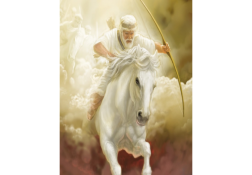 July 10 2022
Jesus: Unrepentant Severe Sexual Sin Leads to Exclusion from God's Kingdom
July 10 2022
Jesus: Unrepentant Severe Sexual Sin Leads to Exclusion from God's Kingdom
(3) We would not expect Jesus to condemn the "same-sex attracted" merely for experiencing (but not acquiescing to) an involuntary impulse.
Read more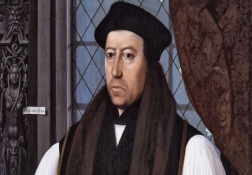 July 02 2022
THOMAS CRANMER: A Personal Reflection
July 02 2022
THOMAS CRANMER: A Personal Reflection
He was the most important theologian of the English Reformation, and arguably the most important in the five-hundred-year history of the Church of England if, for no other reason, he was responsible for all the recognized formularies of our Anglican heritage: the Articles of Religion, the Homilies (of which he wrote four of the original twelve in the first book), and the Book of Common Prayer (including the Ordinal). In so many ways it is fair to call this "Cranmer's Church."
Read more June 29 2022
JUSTIFICATION: ROME AND PROTESTANTS
June 29 2022
JUSTIFICATION: ROME AND PROTESTANTS
Let's start with the Roman system. For Rome, according to the decree of the Council of Trent, justification is one doctrine among many, such as the Trinity and the authority of the Roman church. In Catholic theological view, "grace" as a substance to be imparted and infused into the human by God. It means an ontological change in the person. Grace merely adds to the work of God in creation.
Read more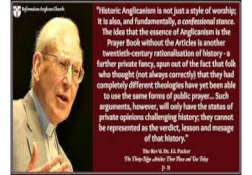 June 28 2022
Anglicanism is like all Reformation churches, "confessional."
June 28 2022
Anglicanism is like all Reformation churches, "confessional."
Our unity was theological, not conciliar, as Tay and Kolini wrote George Carey (the occasion of the consecration of John Rogers and Chuck Murphy): "Any strategy that seeks to ground the unity of the Anglican Communion with its foundation in political accommodation rather than in the essentials of the Christian faith is doomed.
Read more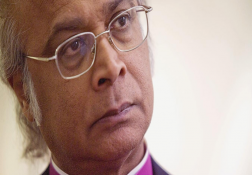 June 20 2022
JUSTIFICATION: ROME AND PROTESTANTS
June 20 2022
JUSTIFICATION: ROME AND PROTESTANTS
For Rome, according to the decree of the Council of Trent, justification is one doctrine among many, such as the Trinity and the authority of the Roman church. In Catholic theological view, "grace" as a substance to be imparted and infused into the human by God. It means an ontological change in the person.
Read more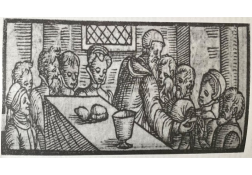 June 16 2022
415 YEARS AGO, ANGLICANISM WAS BORN IN AMERICA
June 16 2022
415 YEARS AGO, ANGLICANISM WAS BORN IN AMERICA
Since Thomas Cranmer's 1552 Book of Common Prayer until the 1979 Prayer Book revision, the communion table was called a "table" so that is wasn't confused with an "altar" and the medieval Catholic understanding of the sacrament.
Read more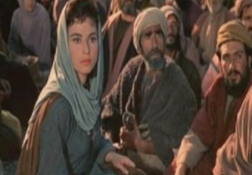 June 02 2022
Why Did King Josiah's Delegation Seek Counsel from Huldah Rather Than Jeremiah, Zephaniah, Nahum, or Habakkuk?
June 02 2022
Why Did King Josiah's Delegation Seek Counsel from Huldah Rather Than Jeremiah, Zephaniah, Nahum, or Habakkuk?
There is no textual indication that King Josiah specifically ordered his delegation to inquire of Huldah; the text merely records him ordering them to inquire of "the LORD" (v. 13).
Read more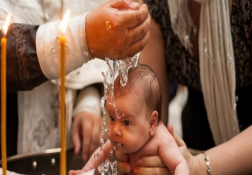 May 30 2022
The Meaning and Purpose of Infant Baptism
May 30 2022
The Meaning and Purpose of Infant Baptism
The real question in our understanding of baptism is whether the baptism service wording stands on its own (borrowed from the Medieval Catholic liturgy and understanding), or whether the Thirty-nine Articles and the Homilies must be considered as commentaries to give us a full understanding. A fair look at all the historic formularies will help us understand Anglican sacramental theology.
Read more May 23 2022
What Is "Progressive Christianity?
May 23 2022
What Is "Progressive Christianity?
A problem with knowing what that means is that there is no historical-theological tradition of "progressive Christianity" as there is of "liberal Christianity." Liberal Christianity has been studied and written about much including by liberal theologian Gary Dorrien whose three volume history of liberal religion in America is exhaustive and magisterial. Others besides Dorrien and earlier have written histories of liberal-modernist theology including Kenneth Cauthen and William Hutchison.
Read more


